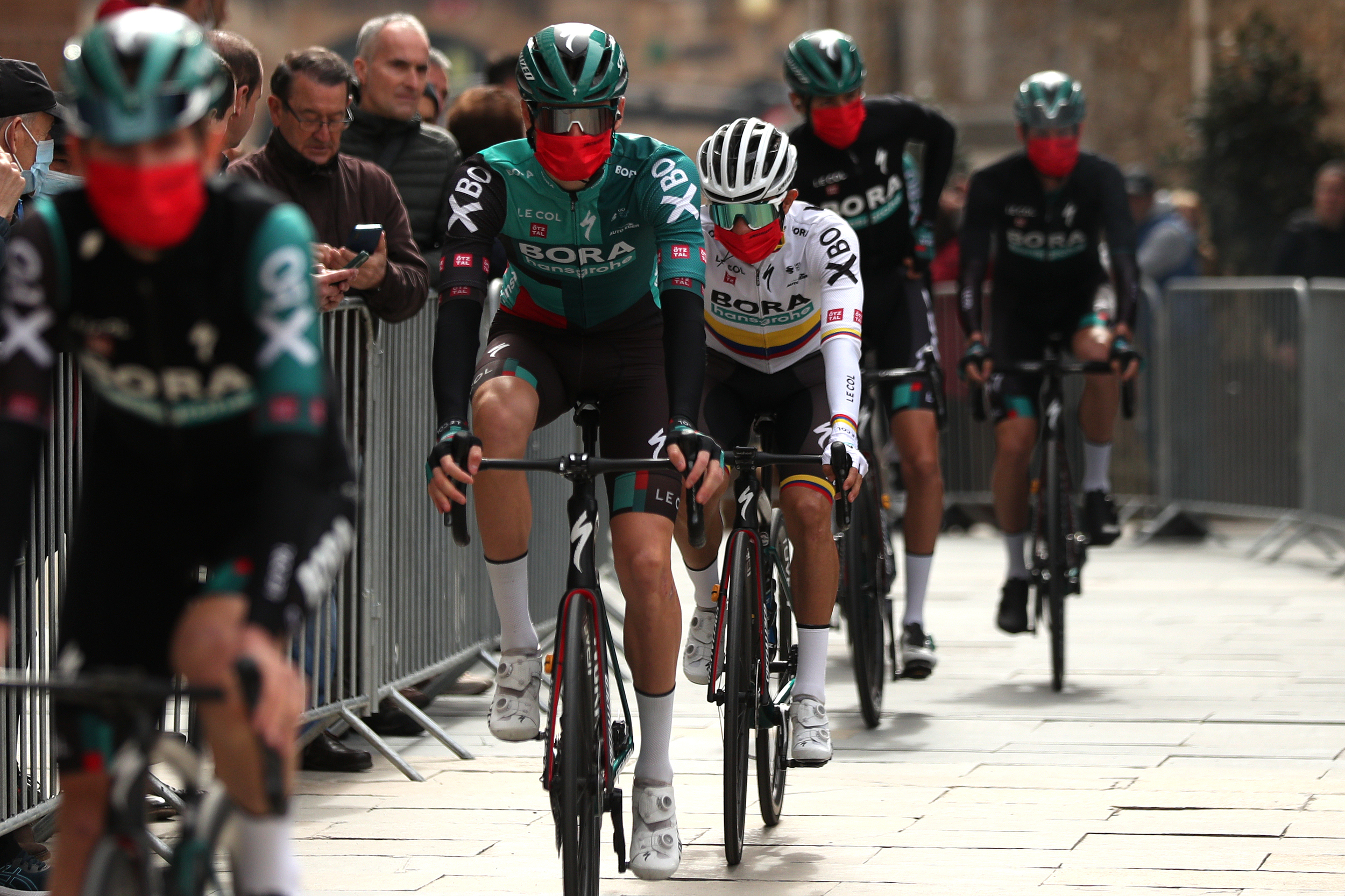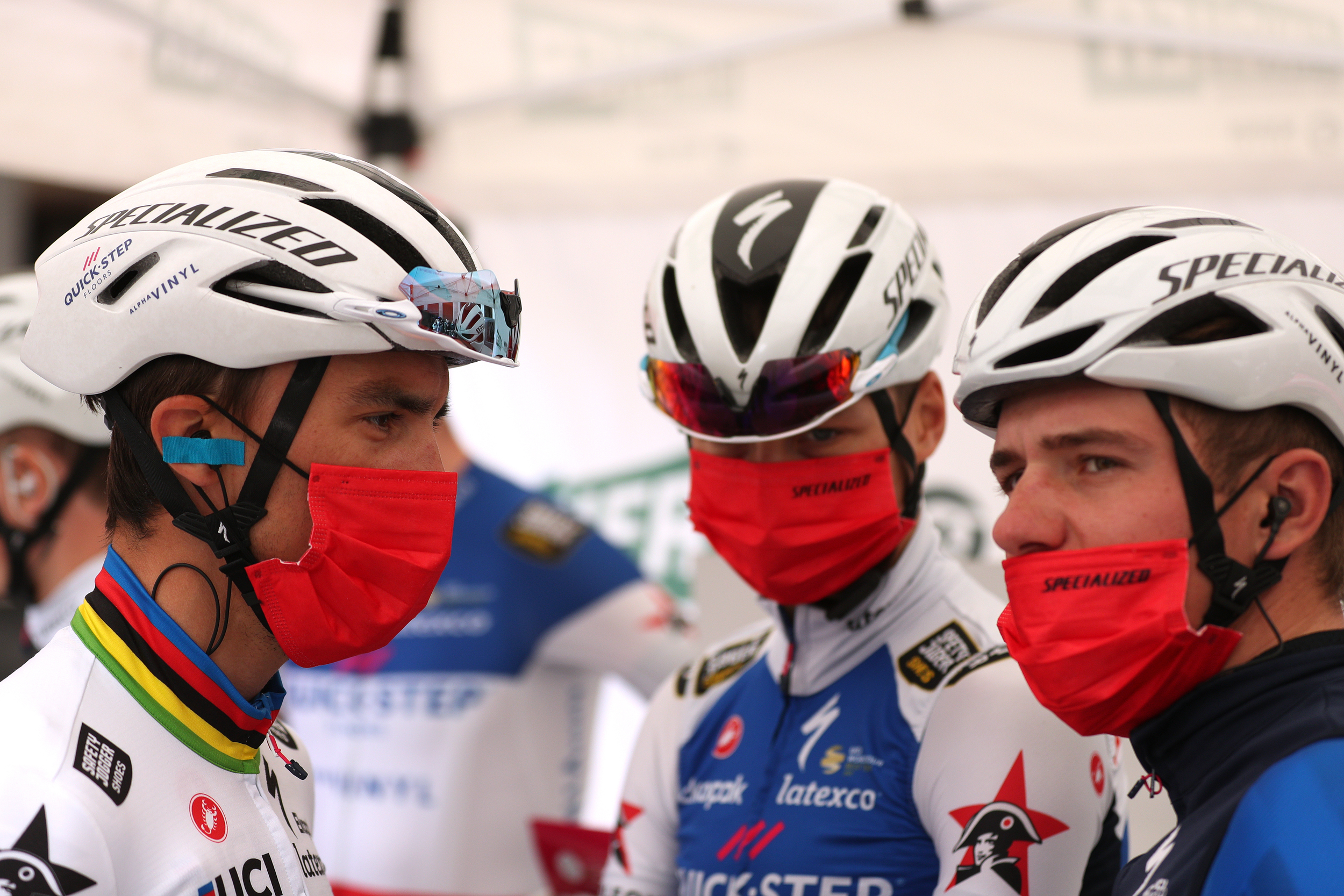Why has cycling had such a big problem with illnesses this spring?
Is it just the seasonal flu and Covid, or is something else going on?


The latest race content, interviews, features, reviews and expert buying guides, direct to your inbox!
You are now subscribed
Your newsletter sign-up was successful
The recurring story of the first few months of the cycling season that is not going away is the continued absence of riders owing to illnesses that are decimating teams and keeping riders bed-bound.
But why?
While it is generally accepted that late winter and early spring are when viruses are more prevalent in society, it is hard to recall a February, March and April that has had such a cleansing effect on both the men's and women's peloton.
Paris-Nice was the first big race to be severely affected, just 59 riders finishing, while at the recent Tour of the Basque Country, Intermarché-Wanty-Gobert Matêriaux didn't field a single rider on the final stage due to an illness that had torn through their camp.
Many of the men's WorldTour teams estimate that more than two-thirds of their rosters have been beset by illnesses and viruses so far this season, with others suggesting that upwards of 90 percent of the male peloton have been affected by either the seasonal influenza, Covid-19, bronchitis or another type of upper respiratory tract infection (URTI). There have been also a number of cases of gastro-intestinal problems, with Ineos Grenadiers' Tom Pidcock one notable sufferer earlier this spring.
Dr. Christopher Edler, head of medical operations at Bora-Hansgrohe, told Cycling Weekly that the current period is a "really challenging situation" and that "illnesses have kept us very busy in the beginning of the season."
He explained that while he "would not exactly confirm that the number of riders having medical complaints has risen to a significant extent", the combination of varied illnesses "we have seen this spring [have] add[ed] up."
The latest race content, interviews, features, reviews and expert buying guides, direct to your inbox!
He continued: "We usually see in the months of February, March and April a high number of the above-mentioned infections. But what is certainly different [this year] is the severity of symptoms and aggravation of illnesses.
"Usually, the athletes describe a tingling throat or a slightly running nose for two to three days and with a bit of rest and good recovery two out of three athletes would overcome these symptoms and do not turn fully ill.
"But at the moment, for all three of them the symptoms would stay or aggravate even with a careful approach of rest and they would develop a full upper respiratory tract infection and therefore need to stay away from training and from racing for one or two weeks.
"This of course then quickly adds up in a short period of time and is responsible for a high number of athletes who are not able to perform."
At the Tour of the Basque Country, almost every rider Cycling Weekly spoke to confirmed that they were either still recovering or had recovered from a recent illness, with Lotto-Soudal's Harry Sweeny admission one shared by many of his peers in the bunch. "After Tirreno-Adriatico I spent about a week in bed on my knees," he said. "It was the worst I've ever felt in my life, to be totally honest."
George Bennett, who rides for UAE-Team Emirates, confirmed at the start of the Basque Country race that he was unwell and he subsequently withdrew before the start of the third stage. Racing while suffering was something on the mind of Quick Step-Alpha Vinyl's James Knox.

"We've been losing four or five guys [a week] to illness - but what can you do?" the Briton asked. "You can't risk taking a guy who isn't healthy. Especially with what happened with [Sonny] Colbrelli, it can get a bit scary."
There is no proof that Colbrelli's collapse after stage one of the Volta a Catalunya was a direct result of a previous bronchitis infection, but the incident involving the Italian - who has since been fitted with a pacemaker - has clearly had an effect on riders.
"Athletes need to be healthy in order to safely perform sports," Dr. Edler said. "This includes an adequate time to recover from illnesses. If we take the URTI as an example, which has a predominantly viral origin, we need to be careful not to prolong the infection in the first place by weakening the immune response in adding too many physical stress factors too early. This also includes training too soon again.
"Also, a bacterial superinfection on top of the viral infection should be prevented during the ongoing sickness if possible. These points would delay the time to full recovery. If an athlete has a prolonged illness, they will not feel well even though the main symptoms may have already eased down. They will be powerless and tired and not yet able to return to their training level because the body continues to fight the infection."
The dangers posed by rushing riders back before they're ready are real, as Dr. Edler outlined: "More severe risks of returning too early can be the aggravation of an upper respiratory tract infection by descending in the lower airways resulting in a bronchitis or pneumonia for example.
"Of course, the heart can be harmed by getting infected with the viruses itself resulting in a myocarditis which is a very serious threat not only to athletes and needs proper treatment and a long time of absence of any kind of training."
A freelance sports journalist and podcaster, you'll mostly find Chris's byline attached to news scoops, profile interviews and long reads across a variety of different publications. He has been writing regularly for Cycling Weekly since 2013. In 2024 he released a seven-part podcast documentary, Ghost in the Machine, about motor doping in cycling.
Previously a ski, hiking and cycling guide in the Canadian Rockies and Spanish Pyrenees, he almost certainly holds the record for the most number of interviews conducted from snowy mountains. He lives in Valencia, Spain.
